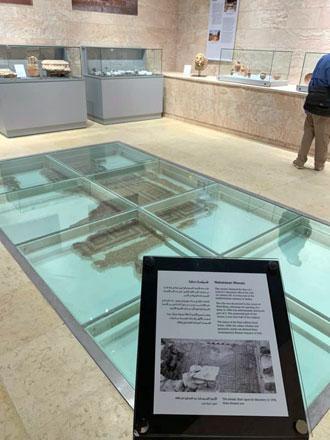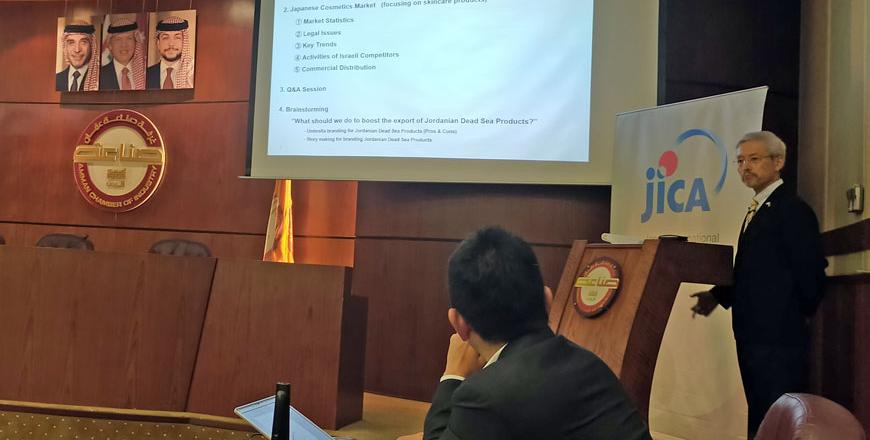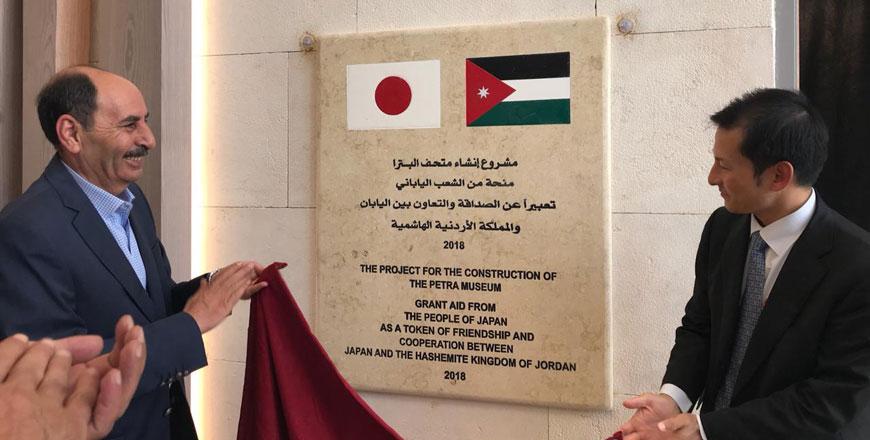You are here
Japan committed to supporting Jordan’s development – embassy
By Mays Ibrahim Mustafa - Oct 25,2022 - Last updated at Oct 25,2022
PETRA – Chargé d'Affaires at the Japanese embassy in Jordan Netsu Shuntaro said that Japan is committed to supporting Jordan through mobilising financial and technical resources.
Japan has provided the Kingdom with development aid amounting to over $4 billion since 1974, Netsu told The Jordan Times on Tuesday during a media tour to Petra organised by the embassy.
He noted that the aid, which took the form of grants, loans and technical cooperation, covers various sectors, including education, health, public security, water, energy and tourism.
The assistance is directed towards building self-reliant and sustainable economic growth in Jordan, reducing poverty, minimising social disparities and promoting regional stability through creating job opportunities and empowering women, refugees and persons with disabilities, Netsu added.
Last December, Japan granted a soft loan amounting to $100 million “to promote the early recovery of Jordan's economy”, which was adversely affected by the COVID-19 pandemic. It also extended a grant aid of $22.9 million in 2020 “dedicated to upgrading pumps and related equipment of the Zai Water Supply System, which covers more than half of Amman's water supply”, he continued.
Its latest grant, given two days ago, extended $41,055 to a Jordanian NGO for the provision of cargo handling and storage equipment to deliver aid supplies to vulnerable groups. Moreover, Japan has provided $219 million to Jordan since 2012 through international organisations in order to support its accommodation of the second largest number of Syrian refugees per capita in the world, according to Netsu.
He also noted that Japan has supported Jordan since 1965 by receiving Jordanian trainees and dispatching Japanese experts and volunteers.
“There are currently 23 Japanese volunteers in Jordan who work on economic and social development projects, while also promoting mutual cultural understanding between the people of both countries,” Netsu said.
The tour also included a visit to the Petra Museum, located next to the main entrance of Petra Archaeological Park, which was constructed by the Japan International Cooperation Agency (JICA), the implementing arm of official development assistance provided by the Japanese government.
The museum, which currently receives 1,000 visitors a day, has welcomed roughly half a million visitors since its inauguration in 2019, according to museum director Ibrahim Farajat.
He noted that, apart from promoting a better touristic experience in Petra, the museum works on raising public awareness about the importance of preserving historical heritage sites, and cooperates with the local community through displaying handmade items created by locals in its gift shop.
The museum, which is divided into five halls, contains around 300 artifacts, introducing visitors to the life of the Nabateans and the history of Petra across different ages. It also features 22 interactive screens providing historical facts on Petra through digital signage and audiovisuals.
Senior Representative at JICA Jordan Office Nobuhiro Kawatani, noted that agency will be launching the Petra Museum application next month on Google Play and the Apple Store to facilitate visitors’ experience inside the museum.
It will provide users with a virtual tour in the museum through panorama images, while also featuring a map of the museum’s various halls in addition to animation videos on the life of the Nabateans, in addition to written and audio descriptions of 40 artifacts in Arabic, English and Japanese.
Commissioner of Petra Archaeological Park and Tourism Affairs Bilal Al Khrissat noted that the Petra Development and Tourism Region Authority (PDTRA) supports the local community through implementing training workshops on jobs needed in the area.
He added that current JICA-funded projects in Petra involve working on establishing an electronic ticketing system and cooperating with the local community to develop traditional crafts.
Related Articles
AMMAN — A mobile application of the Petra Museum is now available on both GooglePlay Store and the App Store.The Petra Museum Application na
AMMAN — Together with the Amman Chamber of Industry (ACI) and the Ministry of Industry, Trade and Supply, the Japan International Cooperatio
AMMAN — The handover ceremony of the Petra Museum took place on Wednesday in Wadi Musa, in the presence of Chief Commissioner of Petra Devel


















